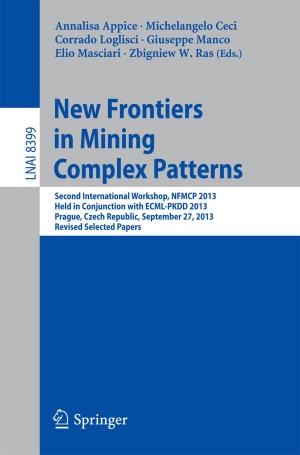Taking Offence on Social Media
Conviviality and Communication on Facebook
Nonfiction, Reference & Language, Language Arts, Linguistics, Social & Cultural Studies, Social Science| Author: | Caroline Tagg, Philip Seargeant, Amy Aisha Brown | ISBN: | 9783319567174 |
| Publisher: | Springer International Publishing | Publication: | August 4, 2017 |
| Imprint: | Palgrave Macmillan | Language: | English |
| Author: | Caroline Tagg, Philip Seargeant, Amy Aisha Brown |
| ISBN: | 9783319567174 |
| Publisher: | Springer International Publishing |
| Publication: | August 4, 2017 |
| Imprint: | Palgrave Macmillan |
| Language: | English |
This book explores communication on Facebook, developing the new theoretical concept of context design as a way of understanding the dynamics of online interaction. Against a backdrop of fake news and other controversies surrounding online political debate, the authors focus on inadvertent acts of offence on Facebook; that is, when users of the site unwittingly offend or are offended by the airing of political or religious views, or of opinions deemed racist or sexist. Drawing on a survey of Facebook users, they explain why instances of offence occur and what users report doing in response. They argue that Facebook users contribute to the construction of a particular social space, one that is characterised by online conviviality and a belief that Facebook is not the place for serious debate. These views in turn shape the kind of political debate that can take place on the site. This thought-provoking book will appeal to scholars and students of applied linguistics, and anyone interested in the role of social media in contemporary political and social life.
This book explores communication on Facebook, developing the new theoretical concept of context design as a way of understanding the dynamics of online interaction. Against a backdrop of fake news and other controversies surrounding online political debate, the authors focus on inadvertent acts of offence on Facebook; that is, when users of the site unwittingly offend or are offended by the airing of political or religious views, or of opinions deemed racist or sexist. Drawing on a survey of Facebook users, they explain why instances of offence occur and what users report doing in response. They argue that Facebook users contribute to the construction of a particular social space, one that is characterised by online conviviality and a belief that Facebook is not the place for serious debate. These views in turn shape the kind of political debate that can take place on the site. This thought-provoking book will appeal to scholars and students of applied linguistics, and anyone interested in the role of social media in contemporary political and social life.















